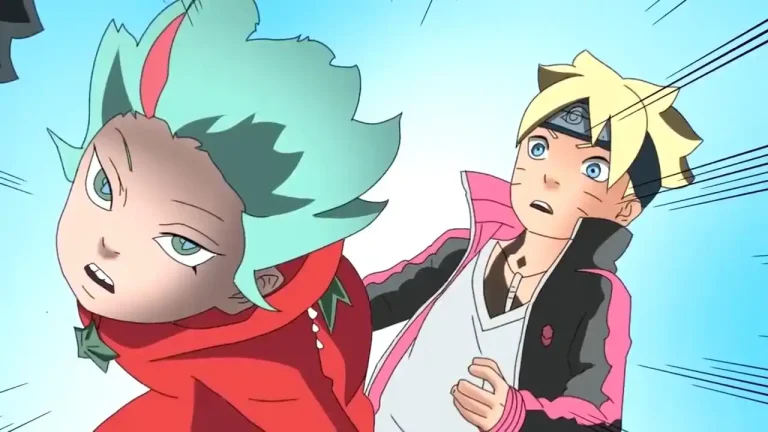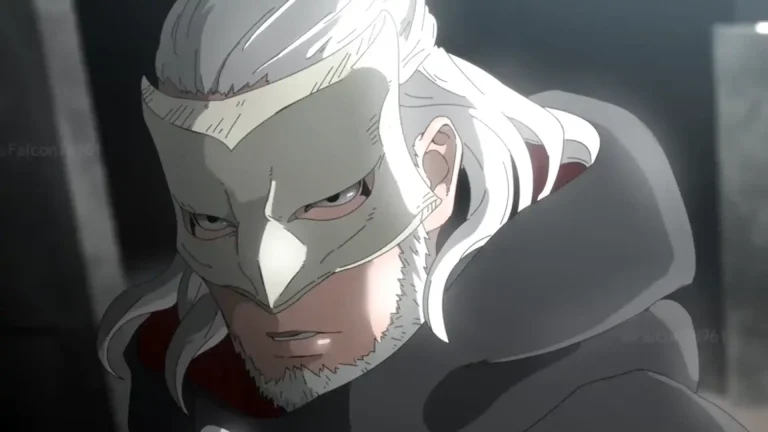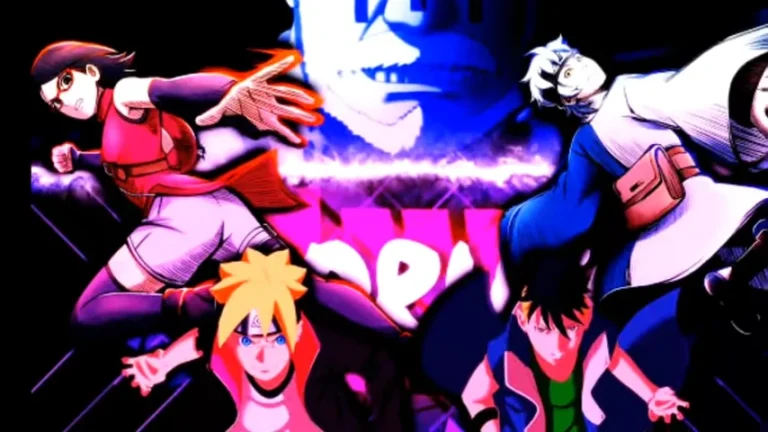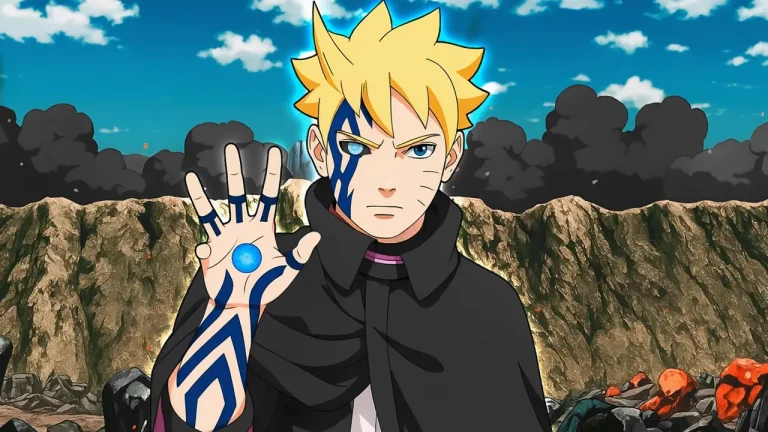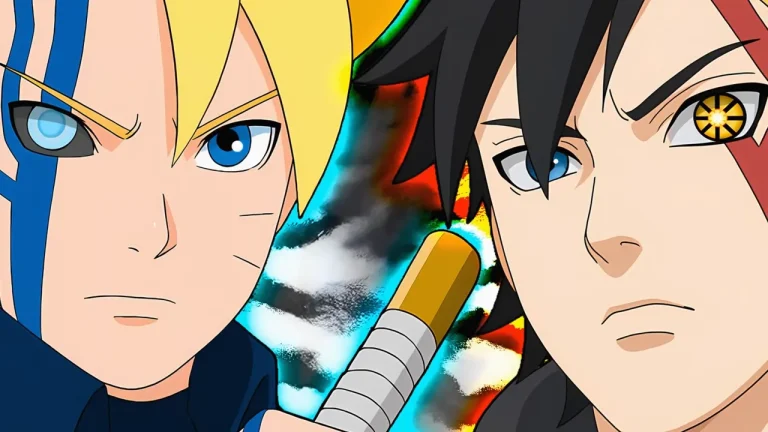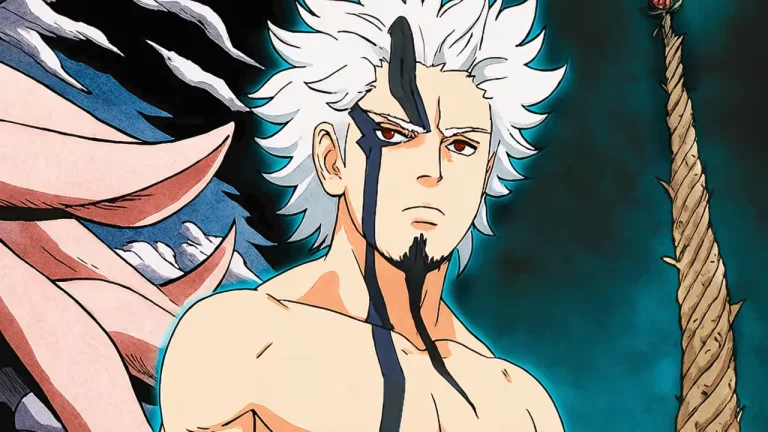The Divine Role of Boruto
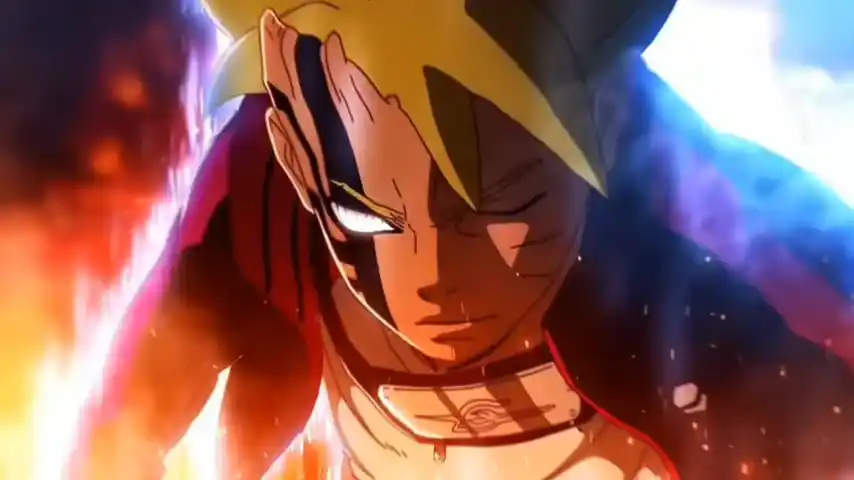
Boruto’s Role in Ending the Otsutsuki Cycle of Destruction
Boruto will likely be assigned the role of ending the cycle of destruction in the domain of gods, and hints have already started appearing in the Boruto manga. A pattern noticed in Two Blue Vortex is that the writers are leveraging the legacy of older characters to build up the newer ones. One example would be the transformation of Jiraiya’s faithful journey of finding the Child of Prophecy, which laid the foundation for Kashin Koji to become a prophecy teller. Furthermore, Sasuke’s sins have manifested into an evil clone who is now seeking the meaning of life and could potentially redeem himself and the Uchiha most unexpectedly.
These are micro-level developments pushing the current plot forward. Once the Shinju Saga is complete, Sasuke will likely return, which implies that Hidari is destined to die. A not-so-favorable fate may await Kashin Koji, whose genes will decide his destiny. He would very likely succumb to the inevitability of fate. However, when it comes to fate and destiny, which are some of the most vital concepts in Boruto’s, what if the cycle of hatred plot is being amplified?
To understand this, we need to go back to the time of Naruto, when Kishimoto was writing one of the most renowned rivalries in shonen history. Naruto and Sasuke’s rivalry began as a typical school rivalry but evolved deeper due to their destinies and the generational curse of hatred. Sasuke, driven by revenge, sought to avenge his clan’s massacre, while Naruto sought recognition and to bond with Sasuke as a friend. It was soon revealed that their rivalry held a profound symbolic meaning: they were the reincarnations of Ashura and Indra. They faced competition and conflict due to the predetermined will of Hagoromo’s sons, who could not resolve their infamous dispute.
Indra, the elder son, sought power and control, while Ashura, the younger one, followed ideals of love and unity. Their rivalry spanned generations, with descendants like Madara and Hashirama continuing the feud. Sasuke, like Indra, initially pursued power, while Naruto embraced Ashura’s ideals of connection. This reincarnated cycle symbolized the generational curse of hatred, which finally ended when Naruto’s unwavering belief in their bond overcame Sasuke’s desire for power and revenge.
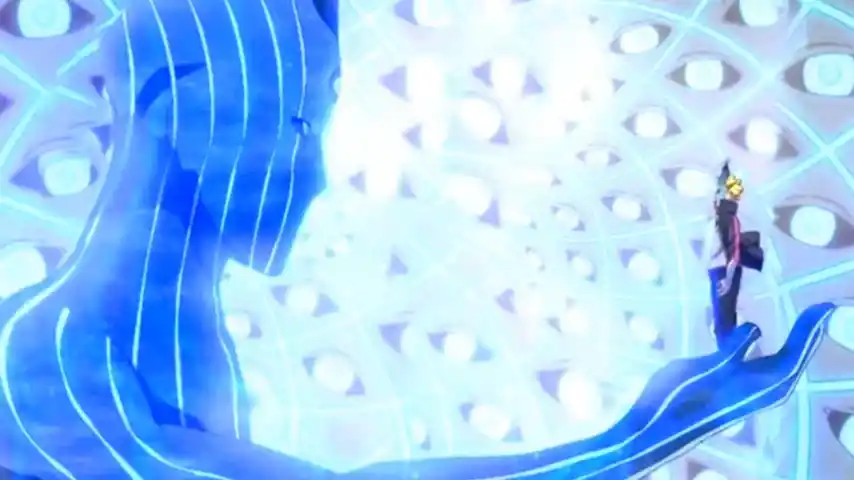
Replacing hatred with destruction for the Otsutsuki provides insight into why they are the way they are. The Otsutsuki Clan believes in destroying planets to attain power—a will each Otsutsuki has inherited. However, there are exceptions, like Toneri and Kaguya, who are more humanized. It’s essential to remember that they are universal creatures, and with every passing minute, numerous planets are being destroyed by this clan. The ultimate Otsutsuki who ascended to godhood was Shibai Otsutsuki, whose intentions, whether benevolent or malevolent, remain a mystery.
The reason for discussing this is that Shibai could be the one to pause the cycle of destruction through Boruto and Kawaki, similar to how Hagoromo granted Six Paths power to Naruto and Sasuke, enabling them to resolve their generational feud. The most basic evidence lies in Boruto and Kawaki’s evolution into Otsutsuki creatures. Their transformation should be more than just the Shinju preying on them. Jura has already given up on taking the chakra fruit and simply wants Boruto dead, to pass the fruit to Code after preying on Kawaki. However, given the prologue sequence that hints at future events, there must be a deeper reason behind their ascension to alienhood.
In Chapter 13 of the Boruto manga, Jura pointed out that Boruto was being protected from the heavens, reminiscent of Ashura Otsutsuki and Hagoromo choosing him over Indra due to his ideals of love. Indra, on the other hand, believed strength was essential for achieving goals and maintaining control. Hagoromo’s decision to choose Ashura led to Indra’s revolt, sparking the generational feud. However, Boruto and Kawaki’s story differs from Naruto’s and Sasuke’s. Shibai’s protection of Boruto from the heavens may symbolize how Hagoromo chose Ashura over Indra for his harmonious ideals.
Boruto wants to fix things between him and Kawaki, making him a peacekeeper. If there is indeed a cycle of destruction within the Otsutsuki Clan, it is likely Boruto who can end it. This responsibility does not fall on Kawaki because of his approach—Kawaki’s decision to kill all the Otsutsuki using their power demonstrates his lack of understanding of their situation or the reasons behind their destructive nature. This makes him an impulsive and unstable individual who acts without hesitation, as shown by his actions from the beginning.
Boruto, on the other hand, would never choose to destroy the Otsutsuki Clan, no matter how powerful he becomes. His approach would be more compassionate, akin to how Naruto dealt with challenges, as evidenced by Boruto forgiving Kawaki despite everything he did. This quality may be why Shibai Otsutsuki chose to protect Boruto at all costs, recognizing his potential to end the cycle of destruction within the Otsutsuki Clan. Kawaki’s destructive motives might not appeal to the god of the verse because Shibai seeks a solution to the problem, not the extermination of his clan. However, it is not out of the question for Kawaki to turn over a new leaf and follow Boruto’s path toward resolving the Otsutsuki situation.
Boruto and Kawaki have been granted different Dojutsu of Shibai Otsutsuki—Boruto with the Jougan and Kawaki with the Kokugan. It is not a coincidence that they share these specific Dojutsu, especially given that Isshiki had the Kokugan in his right eye, while Kawaki’s is in his left. This may suggest a potential connection to Shibai Otsutsuki, which is likely being set up for a significant future plot. This could be where the Domain of Gods finally appears in the story.
Before delving deeper into this divine place, it is worth noting that the Domain of Gods was referenced in Chapter 75 of Boruto, where Shibai Otsutsuki was mentioned for the first time. This realm seems to be an actual location, possibly the throne of an Otsutsuki God, from which the deity oversees the multiverse. The Higher Well mentioned by Amado could also reference this place. The key point to discuss is Boruto’s ascension to this realm.
I’m not suggesting Boruto will become an Otsutsuki God, similar to what happened with Hashimaru in Samurai 8 (another work by Kishimoto). Instead, the Domain of Gods could be where Boruto receives his final mission: to fix the Otsutsuki Clan. This mission could begin with Kawaki, who displayed Otsutsuki traits after wreaking havoc in the Leaf Village.
The Jougan’s awakening could prove Boruto has visited such a realm before his future battle with Kawaki. Just as Sasuke’s Rinnegan was awakened with the help of Hagoromo Otsutsuki, Boruto’s connection to Shibai could allow for a similar spiritual manifestation. Sasuke’s ability to summon Hagoromo was due to his status as Indra’s reincarnate, suggesting Boruto might need a medium through which Shibai could summon him to the Domain of Gods.
The summoning would likely be linked to the awakening of the Jougan, or Pure Eye, which appears crucial for initiating a revolution in the Otsutsuki World. This could be why Urashiki was surprised to see it and referred to it as a troublesome eye.
One of the vital reasons for Boruto to obtain the divine power of the Jougan before his upcoming fight with Kawaki is linked to the limiters revealed in Chapter 15 of the Boruto manga. When Koji stated that all members of Kara were modified with the cells of Shibai, there is a strong possibility that Amado did the same with Kawaki. Once Kawaki’s limits are lifted, he can tap into the Shinjutsu powers of Shibai Otsutsuki. Given that Kawaki has been called the Apostle of Destruction, it is highly plausible that the Shinju would grant him some devastating abilities, explaining how he was able to turn Konoha into ruins, as seen in the first chapter.
Assuming Kawaki inherits the destructive side of Shibai’s powers, Boruto would need to counterbalance this aggression, necessitating the awakening of a benevolent power of Shibai Otsutsuki. This sets up a battle of fates where one individual misuses divine power while the other aims to prevent further chaos. An intriguing analogy I will explore in future blogs about Kawaki’s next power-up explains the time uniquely skip scenario. Essentially, Boruto and Kawaki are using the powers of the same Otsutsuki God against each other, and this battle is fueled by fate.
To maintain balance in the universe, Shibai’s abilities include manipulating space through the Kokugan, while the Jougan presumably controls time. As the ultimate and unparalleled existence, Shibai’s duty would be to ensure order in the universe, with space and time vital for the cosmos’ smooth functioning. Thus, the battle between Boruto and Kawaki could symbolize the power of light over darkness. The Kokugan is known as the Eye of Darkness, while the Jougan is regarded as the Pure Eye.
I will delve deeper into this topic in an upcoming article published in a few days. The Divine Shinjutsu of time that the Jougan could unlock might ultimately make Boruto the strongest Otsutsuki alive. As for how the signature ability of the Jougan might manifest, the Pure Eye could draw inspiration from one of the Five Abhiñās, a renowned concept in Buddhism. Remarkably, these five Abhiñās share similarities with the divine concepts depicted in Boruto.
For the Jougan, there is an Abhiñā called the Divine Eye, known as Dibba Cakkhu, which could hint at the potential abilities of this mysterious eye. Kishimoto likely took inspiration from the Abhiñās while crafting the plot of the Jougan and the Otsutsuki Gods. There may even be a connection to Karma, as the Divine Eye is said to identify the karmic destinations of others.
What exactly are these karmic destinations, and can they help solve the Jougan’s mystery? In simple terms, the Divine Eye would take prescience to a new level, allowing the user to change the fate of any individual. In other words, the Pure Eye could select the karmic destination for an opponent, shaping their destiny according to the will of the Divine user. This is somewhat akin to omnipotence but achieved through ocular means. For instance, if Kawaki were destined to be sacrificed in various possible futures, the Jougan could create an entirely new future where that outcome does not exist. Simply put, it could manipulate the forthcoming time for an individual, altering their destiny.

